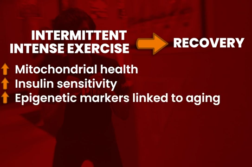LOS ANGELES, Calif. (Ivanhoe Newswire)—Every year in the United States, 380,000 babies are born before the 37th week of pregnancy. Premature births can create life-long health complications affecting the lungs, the brain, and the heart. Now, a team of researchers has found a woman’s level of stress even before she gets pregnant can have serious consequences for her baby.
Smoking, excess weight, high blood pressure, or diabetes during pregnancy are all known risk factors for premature birth. For years, stress has also been on the list. But now researchers are looking at the impact of stress before conception.
“Moms who were experiencing heavy stress before they even became pregnant, had shorter gestation, shorter pregnancies,” shaed Christine Dunkel Schetter, PhD, professor pf psychology at University of California, Los Angeles.
Professor Dunkel Schetter and her research team at UCLA surveyed 360 mothers about their general stress or perceived stress levels. They also asked about environmental stressors including money worries, job loss, lack of food, parenting challenges, and interpersonal violence. They found that a woman’s stress—up to four years before conception—impacted the length of her pregnancy.
“So, it certainly is surprising to be able to show that you can go that far back and affect an outcome of a nine-month pregnancy,” explained Dunkel Schetter.
The researchers say the findings suggest women need mental health and wellness support well before becoming pregnant to protect the health of their future families.
The researchers found women who were exposed to the highest and lowest amounts of stress in their environments had the shortest pregnancies. While women who had moderate amounts of stress before conception had the longest pregnancies. The researchers say women exposed to moderate stress may have developed effective coping strategies.
Contributors to this news report include: Cyndy McGrath, Executive & Field Producer; Roque Correa, Editor.
To receive a free weekly e-mail on Medical Breakthroughs from Ivanhoe, sign up at: http://www.ivanhoe.com/ftk
Sources:
https://www.mayoclinic.org/diseases-conditions/premature-birth/symptoms-causes/syc-20376730
https://www.uclahealth.org/mothers-stress-may-lead-to-preterm-births-faster-aging-in-children
MEDICAL BREAKTHROUGHS
RESEARCH SUMMARY
TOPIC: STRESS AND EARLY BIRTHS
REPORT: MB #4887
BACKGROUND: Anxiety, depression, and stress in pregnancy are risk factors for negative outcomes for mothers and children. Anxiety in pregnancy is associated with shorter gestation and can have unfortunate implications for fetal neurodevelopment and child outcomes. Anxiety about a particular pregnancy is especially influential. Chronic strain, exposure to racism, and depressive symptoms in mothers during pregnancy are associated with lower birth weight infants with consequences for infant development. These recognizable risk factors and related pathways are used to distinct birth outcomes and study further investigation.
(Source: https://www.ncbi.nlm.nih.gov/pmc/articles/PMC4447112/)
CAUSES OF STRESS IN PREGNANCY: Normal pregnancy discomforts, like trouble sleeping, body aches and morning sickness may feel even worse with stress. A person may also have problems eating, like not eating enough or eating too much, causing them to be underweight or to gain too much weight during pregnancy which may increase the risk of having gestational diabetes and preterm labor. Stress may lead to high blood pressure during pregnancy which puts the mother at risk of a serious high blood pressure condition called preeclampsia, premature birth and having a low-birthweight infant. Stress can also impact how a person responds to certain situations. Some women deal with stress by smoking cigarettes, drinking alcohol or taking drugs, which can lead to serious health problems. Many women worry that stress may lead to miscarriage, but while extra stress isn’t good for your overall health, there’s no evidence that stress causes miscarriage.
NEW STUDY: A study published in the Journal of Pediatrics, looked at possible links between infant health and maternal perceptions of stress during and after pregnancy. The study involved low-income, racially, and ethnically diverse overweight women with an average age being 28 years. For the study, the women rated on a five-point scale how stressed they felt by challenges in their lives during middle and late pregnancy. Researchers studied the health of the infants across the first year of life by examining their medical records. For every 1-point increase in reported prenatal maternal stress, the research team noticed a 38 percent increase in infectious illness, a 73 percent increase in non-infectious illness and a 53 percent increase in variety of illnesses among the infants. The year after the birth of their babies, the mothers in the study reported on whether they had experienced major illness, the death of loved ones, being the victim of a crime, relationship problems, housing difficulties, legal issues, or financial problems during pregnancy. Major stressful life events were common, with 47 percent reporting three or more events, 39 percent reporting one to two events and 14 percent reporting no such events.
(Source: https://www.ucsf.edu/news/2020/09/418491/maternal-stress-during-pregnancy-linked-infant-illness)
FOR MORE INFORMATION ON THIS REPORT, PLEASE CONTACT:
STUART WOLPERT
(310) 454-3579
If this story or any other Ivanhoe story has impacted your life or prompted you or someone you know to seek or change treatments, please let us know by contacting Marjorie Bekaert Thomas at mthomas@ivanhoe.com




